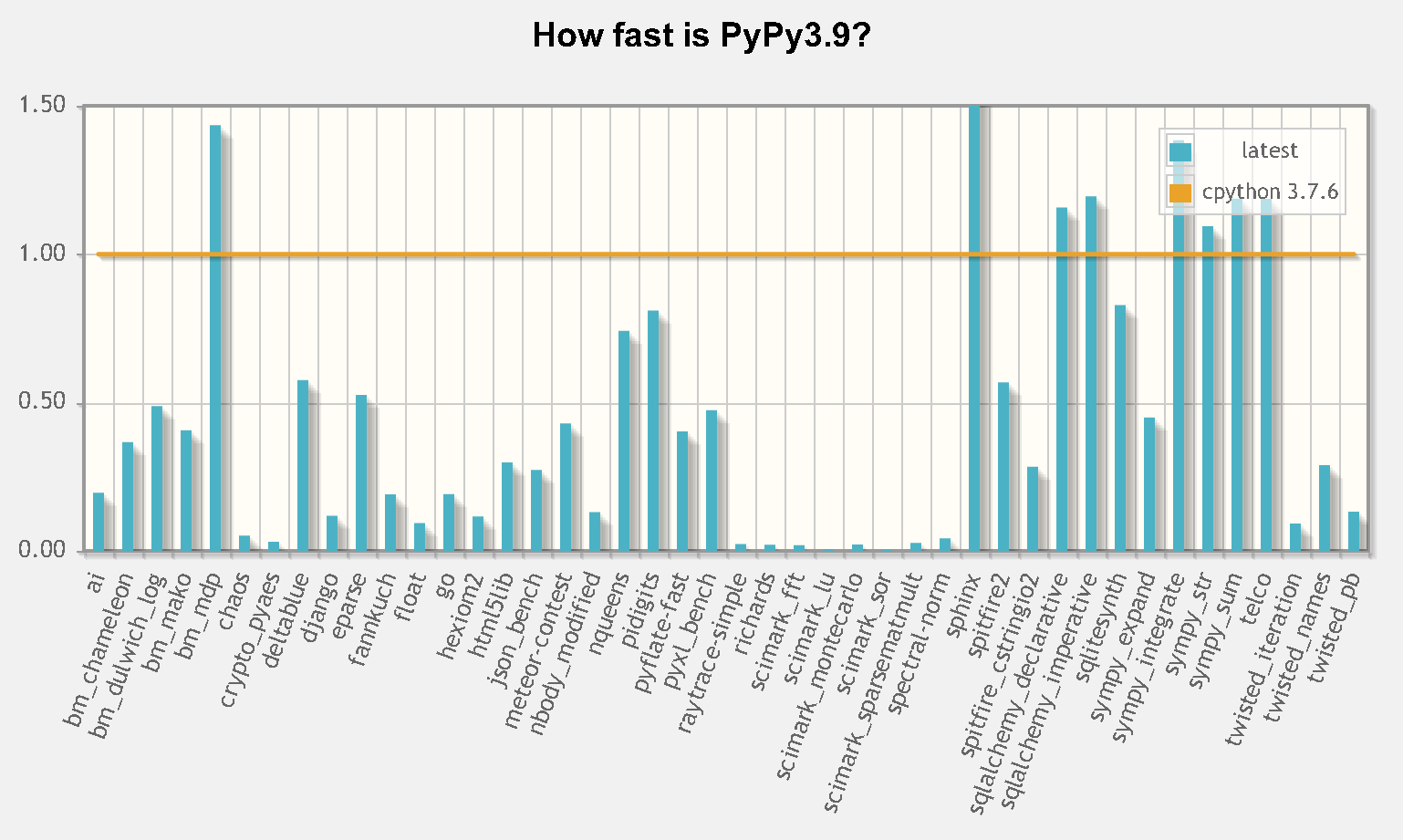5 Ways to Speed Up Your Python Code
As a Python developer, you may have encountered situations where your code runs slower than you'd like. Maybe you have a script that takes a long time to run, or maybe you're working on a project with performance-critical sections. Whatever the case may be, there are several ways you can speed up your Python code to make it run faster.
Here are five tips for improving the performance of your Python code:
- Use compiled Python (Cython)
- Use a faster implementation of Python
- Use optimized libraries and algorithms
- Use profiling and optimization tools
- Use concurrency and parallelism
Use compiled Python (Cython)
One way to speed up your Python code is to use a compiled version of Python, such as Cython (superset of the Python language that additionally supports calling C functions and declaring C types on variables and class attributes). Cython is a Python compiler that translates Python code into C code, which can then be compiled and run. This can result in significant performance improvements, especially for computationally heavy tasks.
To use Cython, you'll need to install it and then write your Python code in a special way, with type annotations that tell Cython how to optimize your code. For example:
import cython
@cython.cdivision(True)
def fibonacci(int n):
if n <= 2:
return 1
else:
return fibonacci(n-1) + fibonacci(n-2)Use a faster implementation of Python
Another option for speeding up your Python code is to use a faster implementation of Python, such as PyPy. PyPy is a just-in-time (JIT) compiler that can significantly improve the performance of your Python code.

On average, PyPy is 4.8 times faster than CPython 3.7 (https://www.pypy.org/index.html).
To use PyPy, you'll need to install it and then run your Python code using the PyPy interpreter. For example:
pypy3 script.pyUse optimized libraries and algorithms
In many cases, the performance of your Python code will depend heavily on the libraries and algorithms you use. For this reason, it's important to choose optimized libraries and algorithms whenever possible.
For example, if you're working with numerical data, you might consider using NumPy, a library that provides optimized functions for working with large arrays and matrices. Or if you're working with machine learning, you might consider using TensorFlow or PyTorch, which are optimized for training neural networks.
Use profiling and optimization tools
If you want to dig deeper into the performance of your Python code, you can use profiling and optimization tools to identify bottlenecks and find ways to improve performance.
One such tool is the Python profiler, which allows you to measure the performance of your code and identify areas that could be optimized. Another option is the line_profiler package, which allows you to profile specific lines of code and see how long they take to execute.
Use concurrency and parallelism
If your Python code is bottlenecked by CPU-bound tasks, you can use concurrency and parallelism to speed it up. Python provides several options for concurrent and parallel programming, including the threading and multiprocessing modules.
For example, you can use the threading module to create multiple threads that run concurrently, or you can use the multiprocessing module to create multiple processes that run in parallel. This can help you take advantage of multiple CPU cores and improve the performance of your code.
By following these tips, you should be able to speed up your Python code and make it run faster. Of course, the specific optimization techniques you use will depend on your particular use case and the nature of your code, so be sure to test and evaluate different approaches to see what works best for you.
You may also like
Python Performance Optimization: Techniques to Speed Up Your Code
Python Performance Optimization: Techniques to Speed Up Your Code ex...
Continue readingBoost Your Productivity with These Python Speed-Up Techniques
Learn how to speed up development while working with Python in this ...
Continue readingPython vs. Other Languages: Which One Should You Choose for Your Next Project?
Choosing the right programming language for your next project is cru...
Continue reading